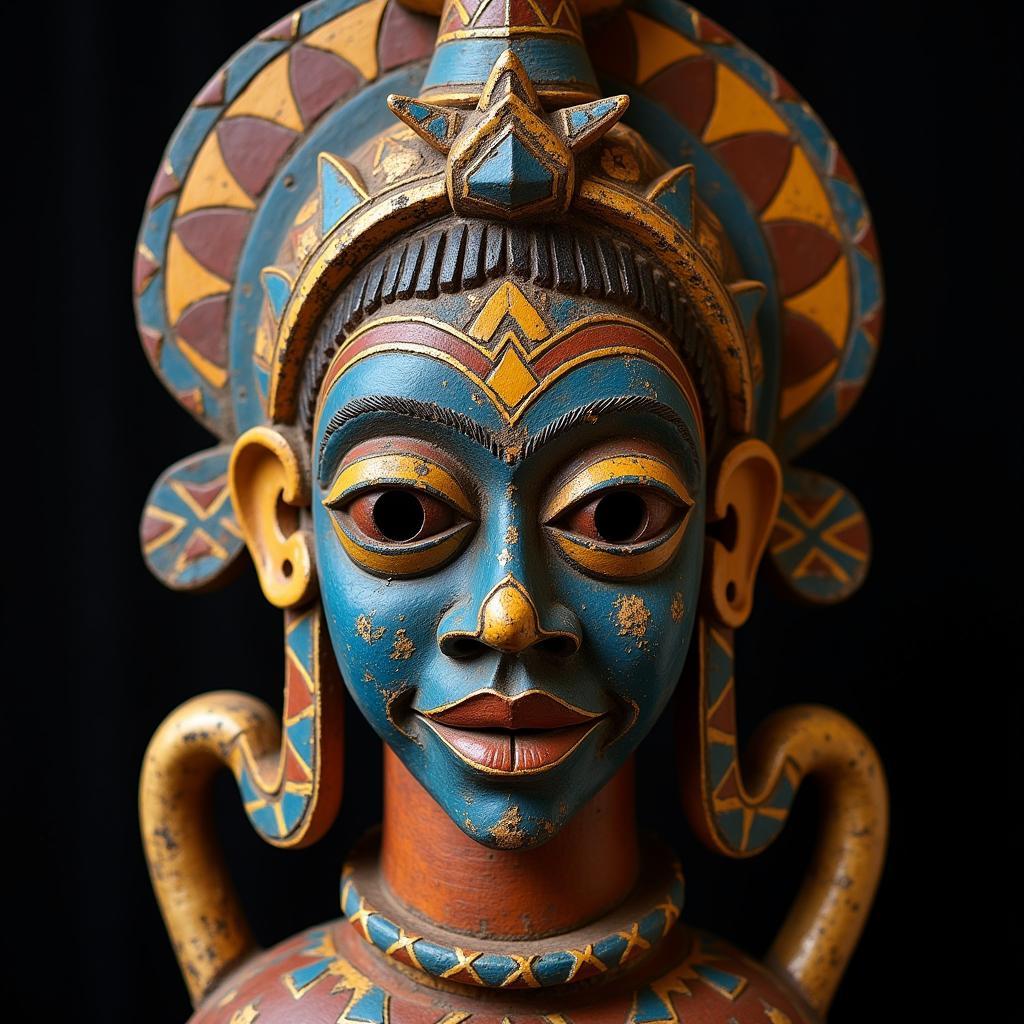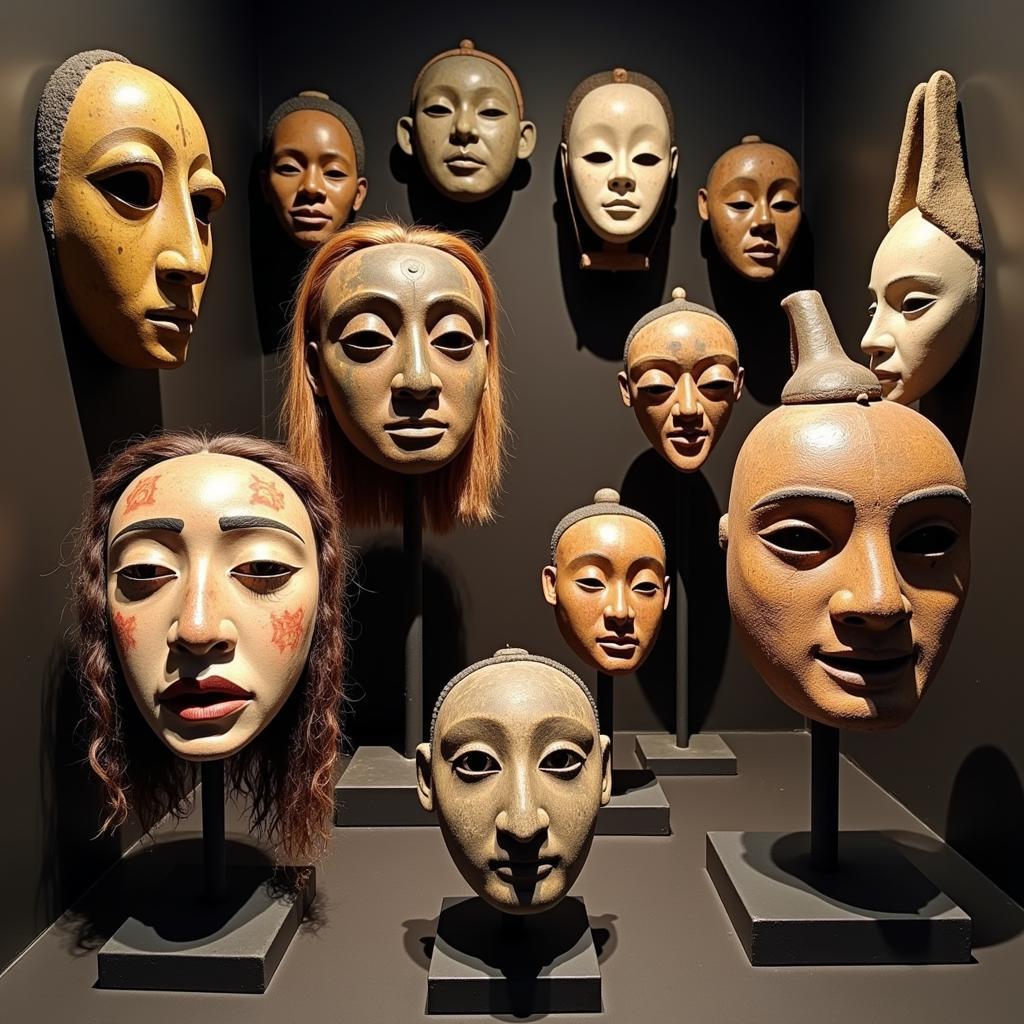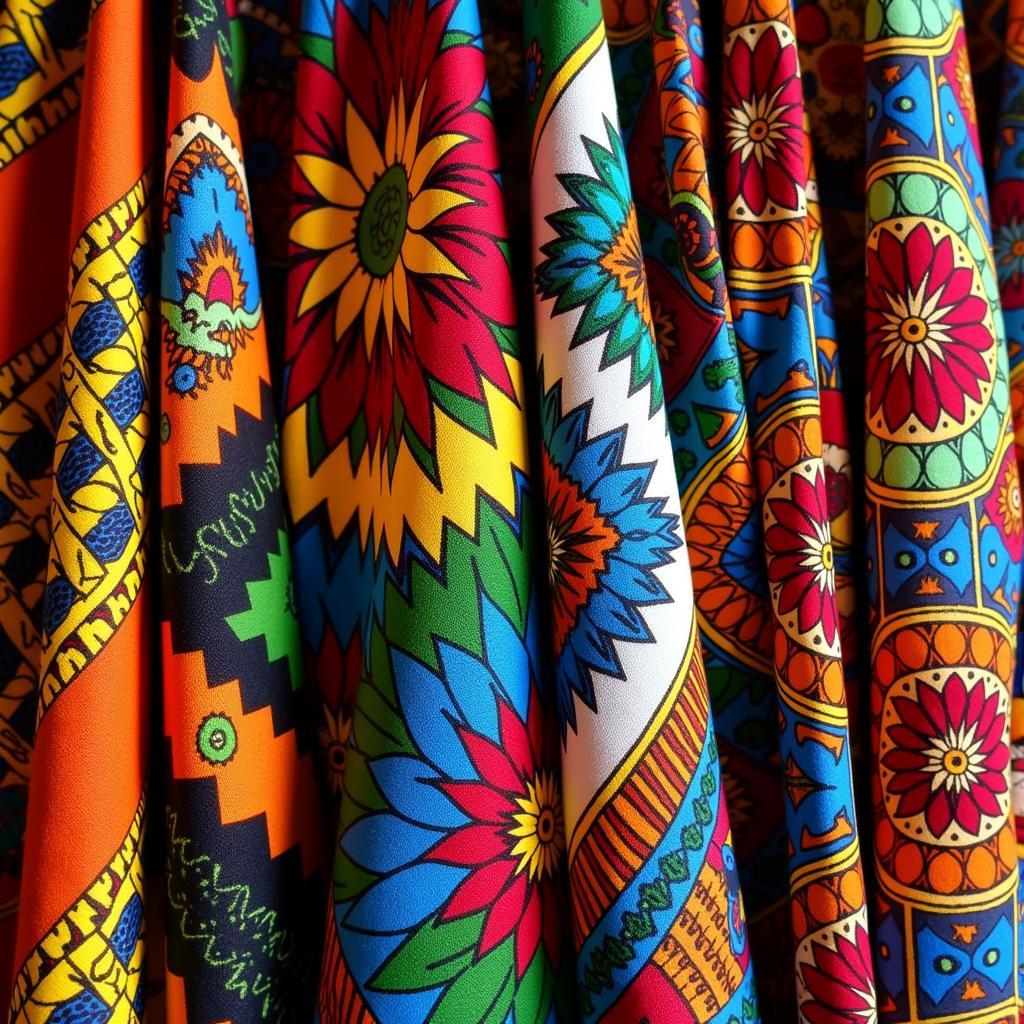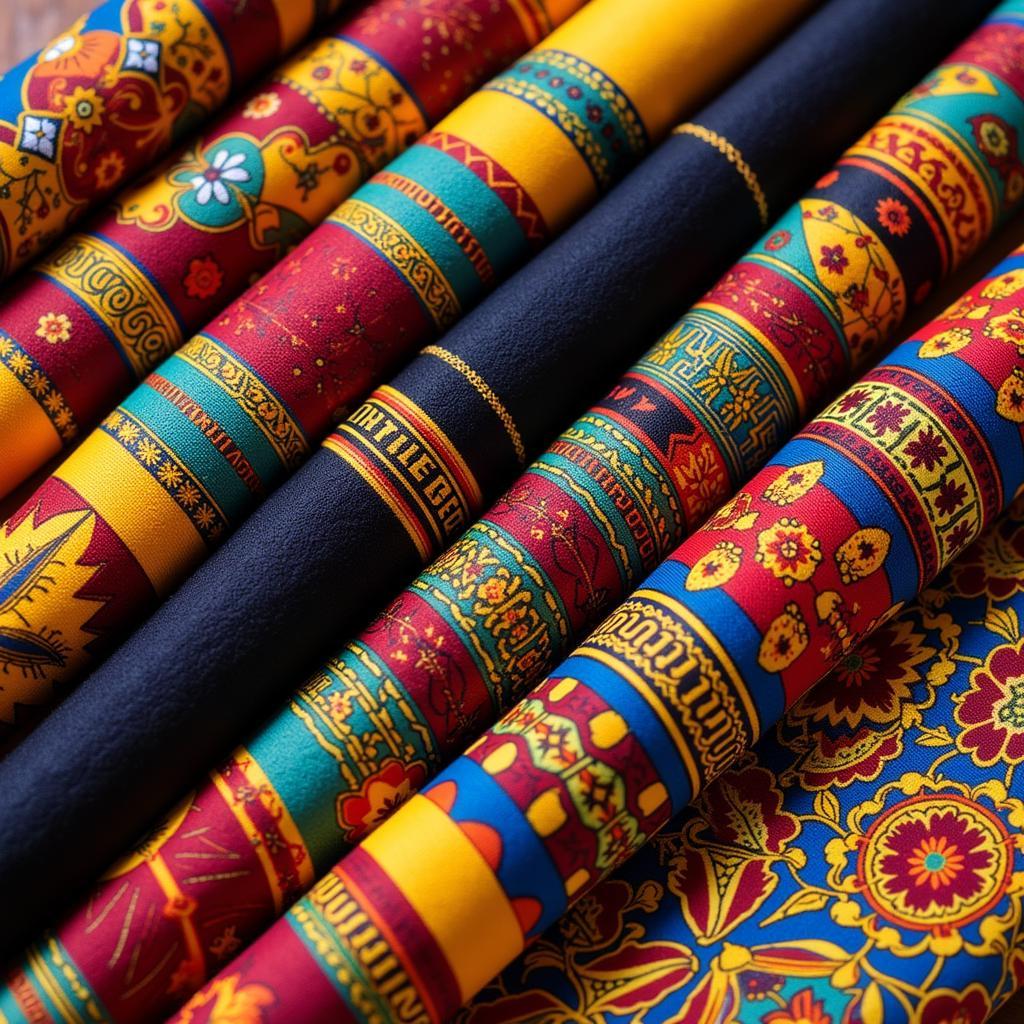Unveiling the Mysteries: A Journey into African Folk Art Masks
African Folk Art Masks, more than just visually stunning objects, offer a captivating glimpse into the diverse cultures and traditions of the African continent. These intricate creations, steeped in symbolism and history, serve as powerful conduits between the spiritual and material realms, embodying ancestral spirits, mythical beings, and profound social commentaries.
The Many Faces of Africa: Exploring Regional Styles and Significance
From the intricate wooden masks of West Africa to the vibrant, beaded creations of Southern Africa, each region boasts a unique style reflecting its cultural identity and beliefs. Let’s embark on a journey to uncover the diverse world of African folk art masks:
- West Africa: Known for their bold features and geometric designs, masks from this region, particularly those of the Yoruba people in Nigeria, often represent deities and are used in elaborate masquerades celebrating important events and rituals.
- Central Africa: Masks from Gabon, such as those used in the Fang people’s Bwiti rituals, are characterized by their heart-shaped faces and abstract features, symbolizing the transition between life and death.
- East Africa: The Makonde people of Tanzania and Mozambique are renowned for their expressive helmet masks depicting ancestral spirits, often with exaggerated features and dynamic poses.
- Southern Africa: The Zulu people of South Africa are known for their vibrant beaded masks, often used in ceremonial dances and rituals, reflecting their rich cultural heritage.
 West African Yoruba Mask
West African Yoruba Mask
Beyond Aesthetics: Unmasking the Cultural Significance
African folk art masks are not merely decorative pieces; they are living embodiments of cultural narratives, spiritual beliefs, and societal values. Their significance extends far beyond their aesthetic appeal, serving as:
- Spiritual Intermediaries: Masks act as bridges between the human and spirit worlds, allowing communication with ancestors, deities, and supernatural forces.
- Guardians of Tradition: Passed down through generations, these masks embody the history, values, and beliefs of a community, preserving cultural heritage.
- Social Regulators: Masks play a crucial role in upholding social order, used in rituals and ceremonies that address issues of justice, morality, and community harmony.
- Artistic Expressions: Beyond their ritualistic function, these masks demonstrate the artistic ingenuity of African cultures, showcasing exceptional craftsmanship and creativity.
The Enduring Legacy: African Masks in the Modern World
Today, African folk art masks continue to captivate audiences worldwide, their influence transcending geographical boundaries. From inspiring contemporary artists to gracing museum collections, these masks serve as:
- Sources of Inspiration: Contemporary artists draw inspiration from the bold aesthetics and powerful symbolism of African masks, incorporating these elements into their own creations.
- Cultural Ambassadors: Exhibited in museums and galleries globally, these masks introduce diverse audiences to the rich artistic heritage of Africa.
- Symbols of Resilience: The enduring appeal of African folk art masks testifies to the resilience and creativity of African cultures, reminding us of the power of art to transcend time and connect us to our shared humanity.
 African Mask Museum Display
African Mask Museum Display
Conclusion
African folk art masks, far more than just artifacts, offer a profound window into the soul of a continent. Their intricate designs, vibrant colors, and powerful symbolism invite us to explore the rich tapestry of African cultures, reminding us of the enduring power of art to connect us to the past, present, and future.
FAQs
1. What materials are African masks typically made from?
African masks are crafted from various materials, including wood, metal, textiles, feathers, beads, and natural pigments. The choice of material often reflects regional resources and cultural preferences.
2. Are all African masks used in rituals?
While many African masks have ceremonial and ritualistic purposes, some serve decorative or entertainment functions, particularly in contemporary contexts.
3. Where can I see authentic African masks?
You can find impressive collections of African masks in museums worldwide, including the Metropolitan Museum of Art in New York, the British Museum in London, and the Musée du quai Branly – Jacques Chirac in Paris.
4. Can I purchase African masks?
Yes, you can purchase African masks from reputable art dealers, galleries, and online platforms specializing in African art. It is essential to ensure authenticity and ethical sourcing when acquiring such pieces.
5. How can I learn more about the specific meaning of an African mask?
Researching the cultural group and region from which the mask originates can provide valuable insights into its specific symbolism and significance.
Explore Further
Interested in learning more about African art and culture? Check out these related articles:
Need Help?
For inquiries or assistance, contact us at:
Phone: +255768904061
Email: kaka.mag@gmail.com
Address: Mbarali DC Mawindi, Kangaga, Tanzania
Our customer support team is available 24/7 to assist you.

